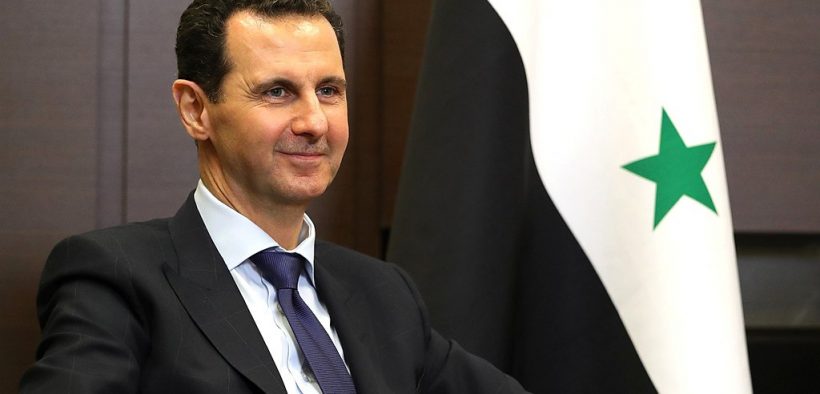Syria Vehemently Rejects US-Turkey ‘Safe Zone’ Deal

“The agreement constitutes a partnership between US and Turkey over aggression against Syria that would serve the interest of the Israeli occupation entity. It also reflects how evasive and misleading the policies of the Turkish regime are.”
The Syrian Foreign Ministry described Wednesday’s agreement between Ankara and Washington to erect a safe zone in northern Syria as “a flagrant attack on Syria’s territorial sovereignty.”
Tension Sorted Out
Following a short-lived diplomatic tension between the two countries, both Turkey and the U.S. agreed on Wednesday to establish a joint operations team to create a safe zone in northern Syria, where U.S.-backed Syrian Democratic Forces operate.
The Turkish Ministry of Defense and the U.S.’ embassy in Ankara issued a joint statement outlining the agreement: “The two sides will make sure to set up the safe zone as soon as possible and that such a safe zone would help as a ‘peace corridor.'” No further details were given.
In response, the Syrian Ministry of Foreign Affairs, issued a statement, as the Syrian News Agency (SANA) reported:
“Syria voices out it’s definite rejection to the US-Turkey agreement for establishing the so-called safe zone. The zone, in question, would constitute a flagrant violation of the territorial sovereignty of the Arab Republic of Syria, as well as the principles of international law and the UN charter”, an official source with the Syrian Foreign Affairs Ministry, told SANA on Thursday.
The statement further read: “The agreement constitutes a partnership between the U.S. and Turkey over aggression against Syria that would serve the interest of the Israeli occupation entity. It also reflects how evasive and misleading the policies of the Turkish regime are.”
Furthermore, the Syrian government called on the international community and the UN to condemn the latest agreement, which it views as an escalation against Syria and a threat to peace and security in the region and broader world, hampering all possible positive efforts toward the end of Syria’s 8-year-old crisis.
Though Turkey and the U.S. had agreed to the safe zone, neither side had specified the location and size of the planned zone.
On Tuesday, Turkish President Recep Tayyip Erdogan threatened that an imminent attack would take place in northern Syria to crack down on the U.S.-backed Kurdish People’s Protection Units that reside along with the U.S.-backed Syrian Democratic Forces in northern Syria.
Turkey views the Kurdish units as members of the Kurdistan Workers’ Party, which waged an armed opposition against the Turkish regime some 35 years ago.
Long-Time Plan
To rein in the Kurds, Turkey had pressed for the creation of a 30-40km buffer zone, deep inside Syrian territories, in order to keep the Kurdish units away from the Turkish-Syrian borders and make sure that all their infrastructure, including underground tunnels and fortifications, are totally removed.
Earlier, U.S. Defense Secretary Mark Esper had said during a visit to Tokyo that any Turkish intervention would be unacceptable. Esper called the intended Turkish action “unilateral.”
He added that the United States, Turkey and the Syrian Democratic Forces (SDF), share mutual interests with respect to northern Syria, and that the U.S. will make sure that such unilateral action will not happen, for it would upset those interests.
The Pentagon chief contended that any unilateral action by Turkey against the SDF and the Kurdish people’s protection units would likely disable the SDF from making sure the region is void of any activity by the Islamic State in Iraq and Levant terrorist group (ISIL), and that holding ISIL’s members in detention will be a difficult mission.
Esper maintained that the U.S. will not abandon the SDF, and that it would protect them in case of a Turkish military attack against Syria.
Talks and Conflict
The defense secretary dispatched a team to Ankara for talks with the Turkish authorities over possible prevention of a Turkish military operation against the Kurds, who live in northern Syria.
Earlier, Ankara accused Washington of hampering a process to set up a “safe zone” inside the northeastern Syrian borders with Turkey that would help clear the region of the Kurdish protection units.
Syria‘s Civil War
In June, Syrian Foreign Minister Walid Muallem said that his country considers Turkey’s military presence in parts of northern Syria illegal. Muallem then demanded neighboring Turkey withdraw its troops from the Syrian territories, while asserting that Syria is not interested in a military showdown with Turkey.
Since 2011, the Arab Republic of Syria, home to nearly 19 million residents, has endured a civil war that was sparked by mass protests demanding social and economic reforms.
Since then, hundreds of thousands have been killed and injured, while hundreds of thousands more have been displaced. In recent years, Russia became a key ally for the Syrian regime, intervening in the war and helping Syria defeat the armed opposition groups.








Sykes-Picot, anyone?